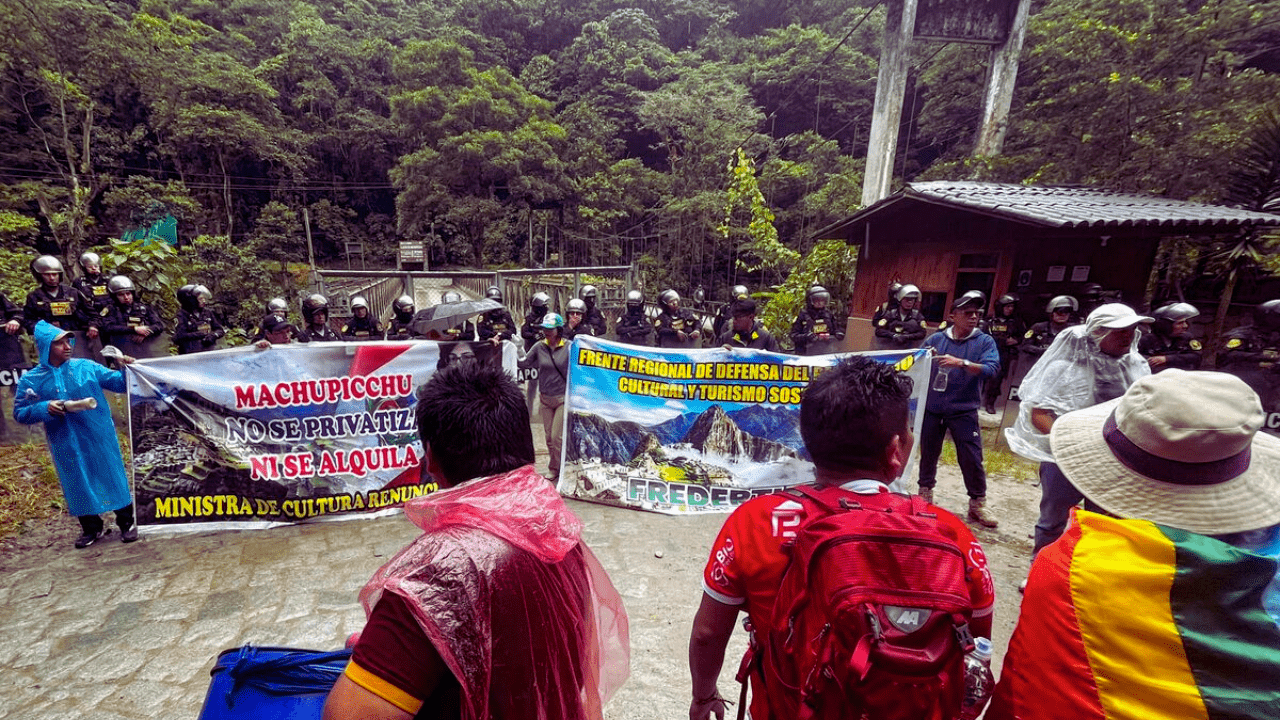In recent days, Machu Picchu – one of the most iconic archaeological sites in the world – has been the center of a controversy that has disrupted the normal flow of tourists and caused widespread uncertainty about the site’s future.
The controversy stems from a New Ticketing system that the Peruvian government implemented to better manage visitors’ flow to the site and reduce tourism’s impact on the area’s fragile ecosystem. However, the new system has sparked protests from local communities and indigenous groups, who argue that it will have a negative impact on their traditional way of life and cultural heritage.
Way Machu Picchu famous for?
The new ticketing system, which the Peruvian government implemented, aims to reduce the number of visitors to Machu Picchu to preserve the site and its surroundings. Under the new system, visitors are required to book their tickets in advance and select a specific time slot for their visit.
The system also includes a new fee structure, which charges higher prices for foreign tourists and lower prices for Peruvian citizens.
The new ticketing system has sparked protests from local communities and indigenous groups, who argue that it will have a negative impact on their traditional way of life and cultural heritage.
Many of these communities have been living in the area surrounding Machu Picchu for centuries, and they argue that the new system will restrict their access to the site and limit their ability to carry out traditional activities such as farming and grazing.
In response to the protests, the Peruvian government has taken several measures to address the concerns of the local communities and indigenous groups.
These measures include the creation of a new advisory council that will involve local communities in the decision-making process and the development of new educational and cultural programs that will help promote a clear understanding and appreciation of the site’s history and culture among visitors from around the world.
However, despite these efforts, tensions continue to simmer at Machu Picchu, and there have been several incidents of unrest in recent weeks.
Recently, a group of protesters blocked access to the site, forcing the evacuation of hundreds of tourists and causing widespread disruption to the normal flow of visitors.
The protesters demanded that the new ticketing system be scrapped, and they called for a more inclusive and participatory approach to the site’s management.
The situation at Machu Picchu remains uncertain, and it is unclear what the future holds for the site and its surrounding communities.
However, the controversy over the new ticketing system highlights the complex relationship between tourism, conservation, and local communities.
As the world becomes increasingly interconnected, it is more important than ever to find ways to balance the needs of these different stakeholders and ensure that the benefits of tourism are shared fairly and equitably.
In the case of Machu Picchu, this will require a more inclusive and participatory approach to the site’s management, one that considers the needs and concerns of the local communities and indigenous groups who have been living in the area for centuries.
It will also require a greater commitment to conservation and sustainability and a recognition of the importance of preserving the cultural heritage and traditional way of life of these communities.
As the situation at Machu Picchu continues to evolve, it is clear that the conflict between the local indigenous community and the Peruvian government raises important questions about the role of tourism in preserving cultural heritage and promoting social justice.
The government must take a holistic and inclusive approach to tourism development, one that recognizes the rights and needs of the local population and makes certain that everyone who benefits from tourism shares the advantages equally. Only by doing so can we ensure that Machu Picchu remains a symbol of cultural heritage and social justice rather than a source of conflict and division.
Thank you


Leave a Reply